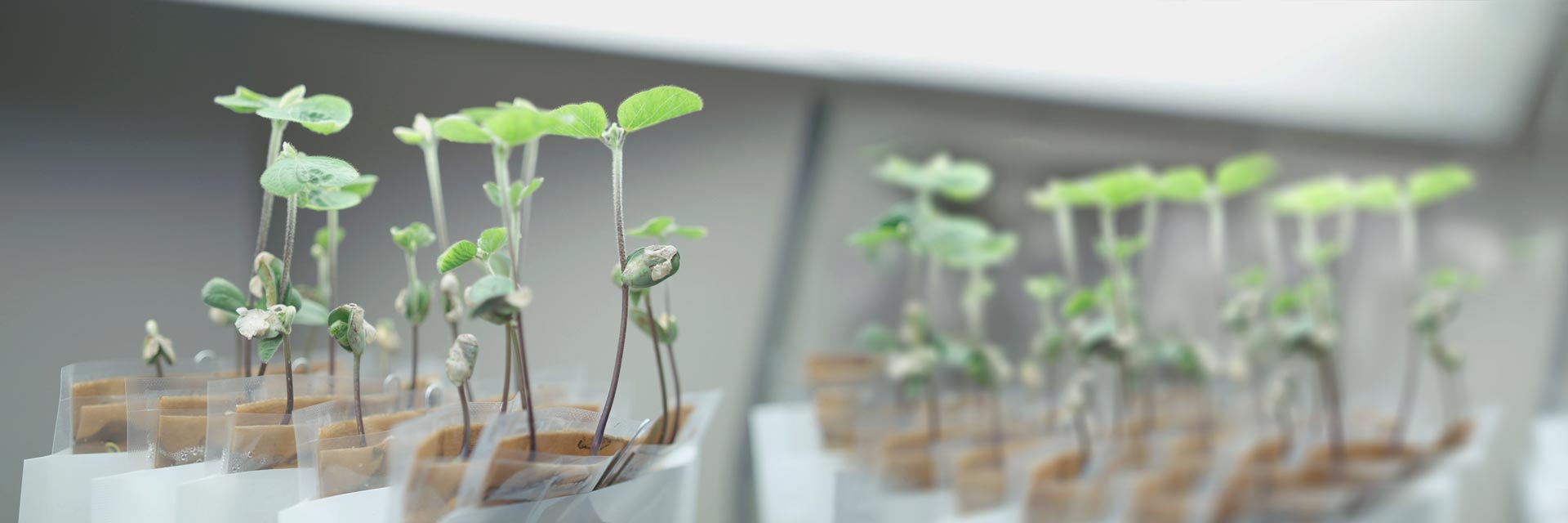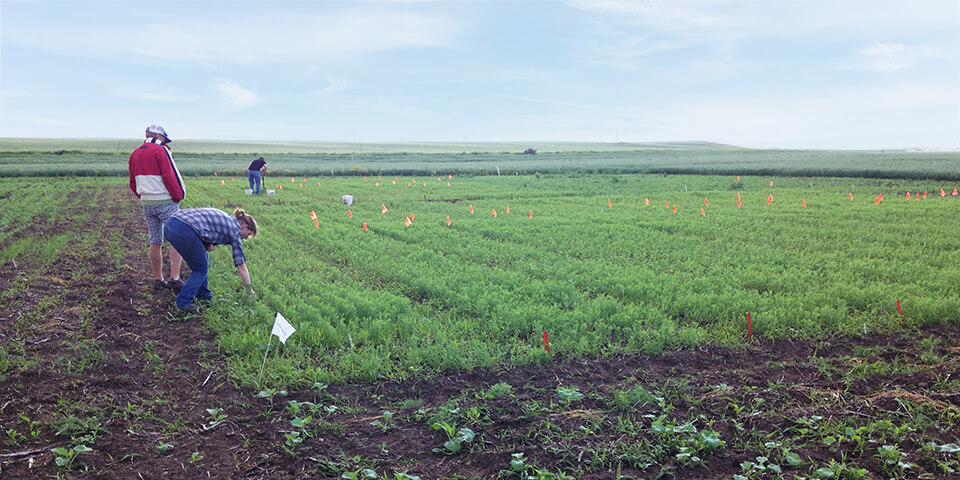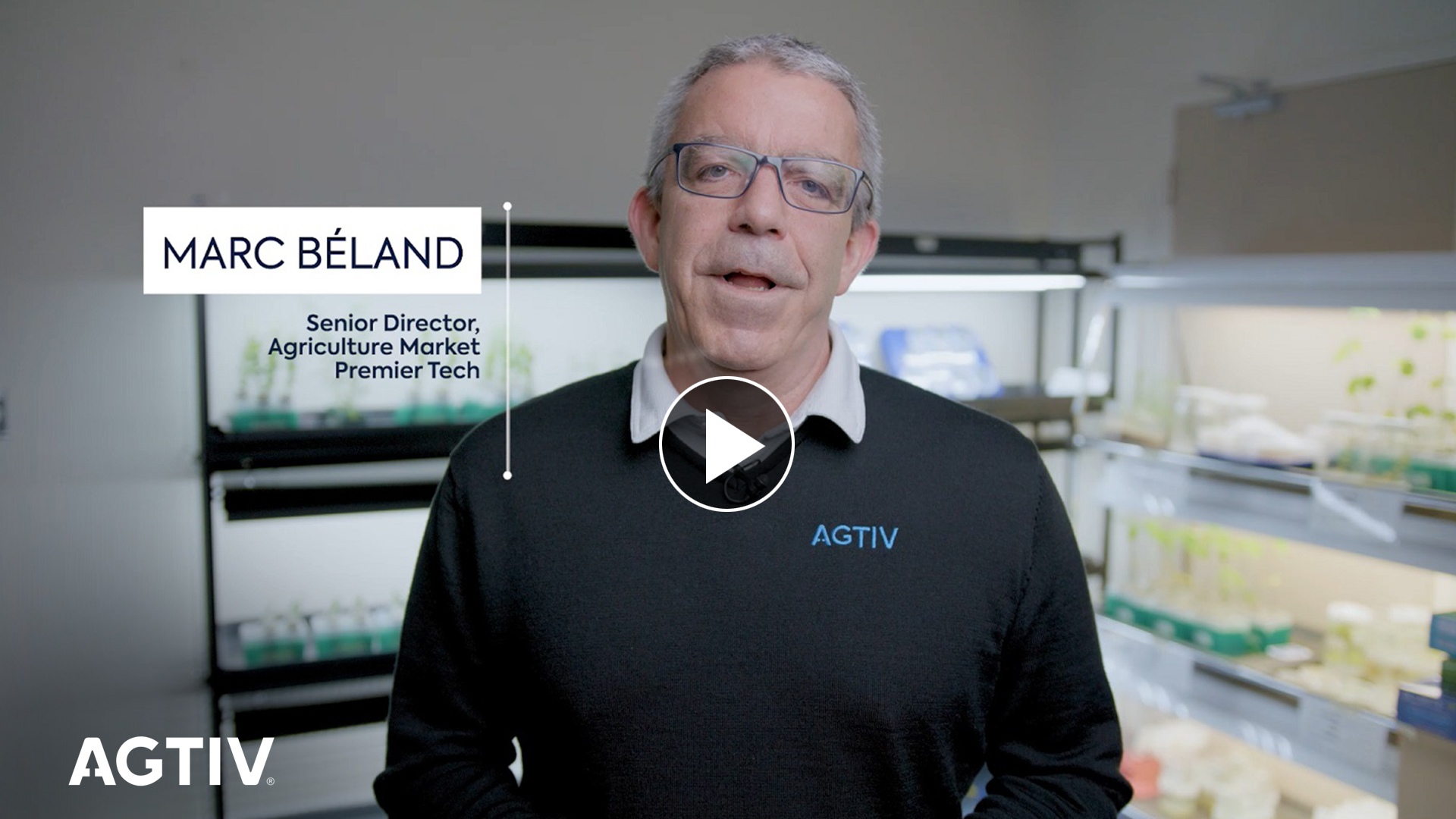
Making High-Quality Inoculants
- Strain Selection
- Quality Control
- In-field Results

Making High-Quality Inoculants
Did you know that numerous factors in an inoculant’s production process can impact its quality? This partly explains why products with the same rhizobium strains on the market do not have the same efficacy on your plants. Discover how Premier Tech masters all the steps for the production of its reliable mycorrhizae and rhizobium inoculants. From the selection of strains to in-field results, consistently following the highest quality standards.
The selection of a biological active ingredient to be incorporated in a product is a long process that necessitates the work of a multi-disciplinary Innovation, Research and Development (IR&D) team. A bacterial or fungal strain itself may offer a certain mode of action, however many variables enter in the screening and actual testing of inoculums. Among these variables, compatibility with other inputs and equipment may be a challenge, along with choosing the right strain for the right crop, and the right formulation as well.
It takes time, effort, knowledge, and investments to develop a diverse portfolio of products with several types of formulations. Advanced knowledge of the microorganisms must be complemented by a profound expertise with carriers, production processes, storage conditions and growers’ operations.
Time and time again, Premier Tech has proven to be a world leader in the production of aseptic mycorrhizal inoculum. With products that guarantee a high concentration of viable spores, leading to an efficient colonization of plants, the company has made its mark since the inauguration of its mycorrhizal inoculum production facility in 2000. Always pushing forward, other inoculums have since been developed with the same care and quest for excellence.
As it is now well known in the agricultural market, AGTIV® incorporates the highest quality inoculum on the market, not only for mycorrhizae, but also for its rhizobium and bradyrhizobium inoculums. Premier Tech’s quality control process is what makes AGTIV® a leading brand with consistent products, batch after batch. “We control the quality from the biofermenters to the formulated products”, says Régine Otis, IR&D Coordinator at Premier Tech, and every aspect of the products’ viability and efficacy is verified for each produced batch. Watch Regine explaining the key quality control steps Premier Tech experts strictly follow for mycorrhizae and rhizobium inoculum production.
Mycorrhizal fungi (PTB297 technology) are produced at an industrial scale in a completely aseptic production facility in La Pocatière, Québec, Canada. As the first company worldwide to produce spores in vitro in a mycoreactor, a rigorous quality control process has been developed to ensure the viability and efficacy of the products.
"The major role of inoculant formulations is to provide a suitable microenvironment, combined with physical protection for a prolonged period to prevent a rapid decline in the inoculated microorganisms." 1 At Premier Tech, the products’ recommended application rates aim to get a concentration of bacteria/acre based on crops’ needs, which are backed by in-field validations.

Rhizobium and bradyrhizobium bacteria (PTB160 and PTB162 technologies) are produced in biofermenters in another facility in La Pocatière, and the concentrated inoculums are in liquid form. These inoculum’s quality control process has been developed with the same rigor than mycorrhizal fungi, to ensure optimal efficacy.
AGTIV® dual-action inoculants are tested the same way to ensure that mycorrhizae and rhizobium, known for their great compatibility, colonize plants together as expected.
Quality control does not stop with the viability of active ingredients. Other tests are done to verify the integrity of product. For example, granular products are tested for humidity content and fine particle rates.
The whole process aims to provide a ready-to-use product for growers, with proven reliability and performance. Seeing the quality control process as a whole is key to generate success, from Premier Tech’s fermenters to field harvest.
What good comes out of a controlled and consistent product, selected and developed by experts? Only data proves if a product is efficient and a picture is worth a thousand words. We have been working with third parties in agricultural research to gather data about new and existing products, and the results show that AGTIV® ranks in the highest performing inoculants on the market in various regions and soil conditions. Here are a few charts about some of the AGTIV® dual-action inoculants (mycorrhizae + rhizobium) compared to competitors, that you can find in the Premier Tech Efficacy Report.
More than 35 years after setting up a research facility on biological active ingredients, Premier Tech has increased efforts into creating value for growers, with premium quality products increasing yields and soil health. “You can have confidence when using AGTIV® inoculants […] They are reliable, and you will have good performance on your farm”, says Marc Béland, Biol., M.Sc., and Senior Director for the agricultural market at Premier Tech.
1 García de Salamone et al. (2019) Manufacturing and Quality Control of Inoculants from the Paradigm of Circular Agriculture. In: Singh D., Gupta V., Prabha R. (eds) Microbial Interventions in Agriculture and Environment. Springer, Singapore.

Find out how Premier Tech has been able to implement the investments, the infrastructure and partnerships needed to develop mycorrhizal fungi and other natural active ingredients.

Marc Béland, Senior Director - Agriculture at Premier Tech, is wishing everyone a great 2023 season!
Learn what's new at AGTIV this year!